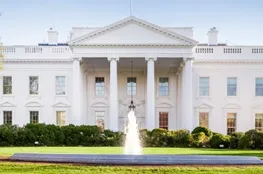Donald Trump has won the presidency, and with his inauguration set for January 20, many are eager to see what he plans to implement from his campaign promises. The Republican control of the Senate provides Trump a clear path to enact his policies, though the tight race for the House remains a factor that could impact his agenda if the Democrats manage a win. Trump’s approach to immigration has been a central tenet of his campaign. He has stated that on his first day in office, he plans to strengthen the southern border and initiate what he describes as the largest deportation program in American history.
These measures, he suggests, could be aided by invoking the Alien Enemies Act of 1798. However, deporting over 11 million undocumented immigrants could cost billions and require substantial government manpower. Additionally, Trump has considered withholding federal grants from local law enforcement that do not cooperate with federal deportation efforts. He also aims to end the 'catch and release' policy, reimplement the 'Remain in Mexico' policy, and revive Title 42, a public health measure to turn away migrants who enter the U.S. illegally.
Another significant policy change would involve sending Congress a bill to ban sanctuary cities, providing funds for hiring additional border agents and proposed benefits adjustments to focus on American citizens. Trump’s stance on abortion, another highly contentious topic, sees him opposing a federal ban, preferring to leave restrictions to individual states. Although he has voiced intentions to protect women, his nomination of conservative justices and their role in overturning Roe v. Wade have sparked criticism.
On the economic front, Trump intends to tackle inflation and has proposed significant tax cuts for workers and small businesses, eliminating taxes on tips, overtime, and social security benefits, and offering tax credits for family caregivers. He seeks collaboration with Elon Musk to eliminate federal regulations that increase costs and stifle job creation. While keeping the Affordable Care Act, he vows to focus on affordability issues across sectors and ensures no taxes on educational costs for homeschooling parents.
His vision includes cutting the corporate tax rate and levying tariffs on imports to prioritize American interests. His environmental stance is characterized by a return to former energy independence, a desire to lower consumer energy prices, and a move away from the Paris Agreement. Trump aims to increase domestic oil production through fracking while trying to rollback regulations perceived as anti-suburban development. On foreign policy, Trump has made bold claims, such as ending the war in Ukraine by negotiating directly with its leaders.
His plans to address Middle East conflicts and prevent a potential World War III remain to be detailed. Cultural topics, especially concerning education, reflect Trump’s firm stance against what he views as inappropriate content such as critical race theory and transgender discussions in schools. He proposes cut federal funding for institutions that enforce vaccine and mask mandates, suggesting a restructuring of the Education Department towards state control. Trump also promises to exclude transgender individuals from women’s sports and ban gender-affirming care for minors.
The threat of retaliation against his perceived political opponents was a notable feature of Trump’s campaign, marked by promises of justice against politicians, public figures, and institutions he accuses of targeting him. Despite Trump’s legal challenges, he has stated intentions to prosecute those involved in investigations like the Jan. 6 Capitol attack, emphasizing persecution narratives. His proposals include appointing a special prosecutor to investigate President Biden’s family and seeking retribution against various public figures who have opposed him.
Throughout his campaign, Trump has conveyed a willingness to challenge media transparency by threatening jail time for journalists who refuse to reveal sources.
























